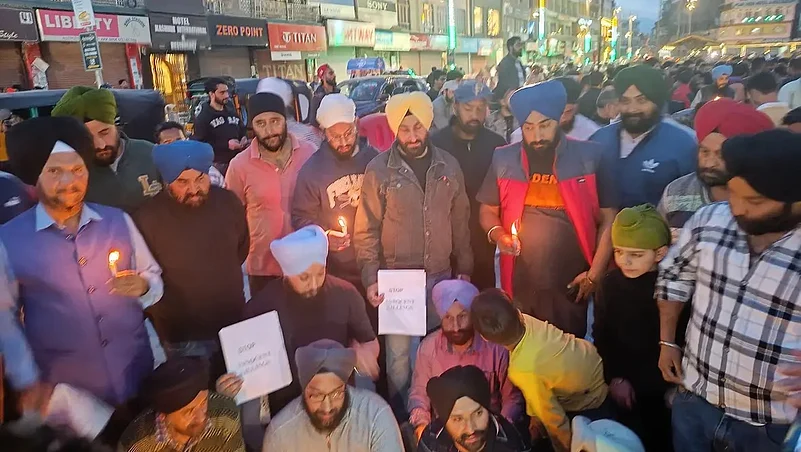The Pahalgam massacre, which claimed the lives of 26 tourists, was one of the most devastating civilian attacks Kashmir has witnessed in the past two decades. Every Indian—whether from Kashmir or any other part of the country—was equally horrified and heartbroken to see innocent lives lost in the name of religion.
Baisaran, often called “Mini Switzerland of Kashmir,” is a well-known trekking spot for tourists and a base for serious trekkers heading toward Tulian Lake. Vast meadows spill into the surrounding forest, and its popularity has encouraged locals to open tea stalls and Maggi points. I've visited it at least a dozen times.
As a Kashmiri and an avid trekker, many friends from across India reach out to me for recommendations on trekking or camping spots. Pahalgam was always on my list. I believed it was safe—but not anymore.
Tourists have long been among the safest people in Kashmir. During the Burhan Wani aftermath—when the valley was under a months-long shutdown and saw one of its bloodiest periods—locals sheltered tourists in their homes, provided free food and lodging, and ensured safe passage to airports and bus stands. This wasn’t a one-time event. Time and again, Kashmiris have stepped forward to protect visitors.
And even this time, Syed Hassan Shah (Adil), a local, sacrificed his life protecting tourists—carrying them on his back to Pahalgam market to get first aid. In the days that followed, others continued to help and guard tourists, risking their own lives.
Growing up in Kashmir, I understood early that not everyone supports terrorism. But what would you do if a group of armed men entered your house demanding food or shelter? Would you refuse them? Would you risk calling the Army or Police, knowing the likely consequences? Locals are trapped in a cruel cycle of fear and survival.
We, the Sikhs, are a micro-minority—less than 1 per cent of the population—who have lived in Kashmir for over 500 years. We have never had direct conflicts with the Muslim majority. If they wanted to wipe us out, it would take them only an hour. We have faced discrimination, trauma, and hardships, but not from the local Muslim community.
When I heard of this attack, I was reminded of the Chittisinghpora massacre, where 36 Sikhs were shot at point-blank range just for being Sikh. Yet within days, the Muslims of Kashmir stood with us. Even militant groups at the time issued statements forbidding any harm to Sikhs. This recent attack echoes Chittisinghpora in many ways.
Locals believe this attack was meant to shatter peace, create distrust between Hindus and Muslims, and perpetuate the false narrative that all Muslims support terrorism. Sadly, many of us have played right into the hands of those who orchestrated this tragedy.
The flood of hate online, attacks on Kashmiri Muslim students in northern states, demands for an “Israel-like” solution to Kashmir—all these reactions show how we have been manipulated once again.
In such a conflicted world, the minuscule Sikh population has opened its Gurudawaras for all the tourists for free food, free shelter, and help to reach airports/bus stands safely. They have been organising candle light marches, and joining in the processions at Lal Chowk against this brutality.
The SGPC Srinagar, and SGPC Budgam have come out, and were seen on videos telling the tourists, that “the langer services will be available all the time, and room facilities are made free of cost for howsoever many days they want to stay, that the Gurudawara will provide taxis if needed, and that they should feel safe and secure inside the premise of Gurudawara.”
One may think that it is a common thing for Sikhs to do, that they are always at the forefront whenever such things happen, that they are known for this from centuries, but add to it the layer of being a micro-minority who has to stay at the very place where all of this is happening, where adults will go to work and children to schools, in the midst of the uncertainty of when or where they might get targeted for their solidarity and help to the “Hindus,” who for now were the main targets of the attack. When self-preservation would have been understandable, the Sikh community chose solidarity instead. In one of the most conflict-ridden regions of the world, this is not just kindness—it is valor.
Bupinder Singh Bali is the author of Those Who Stayed; The Sikhs of Kashmir, a documemoir published earlier this year














